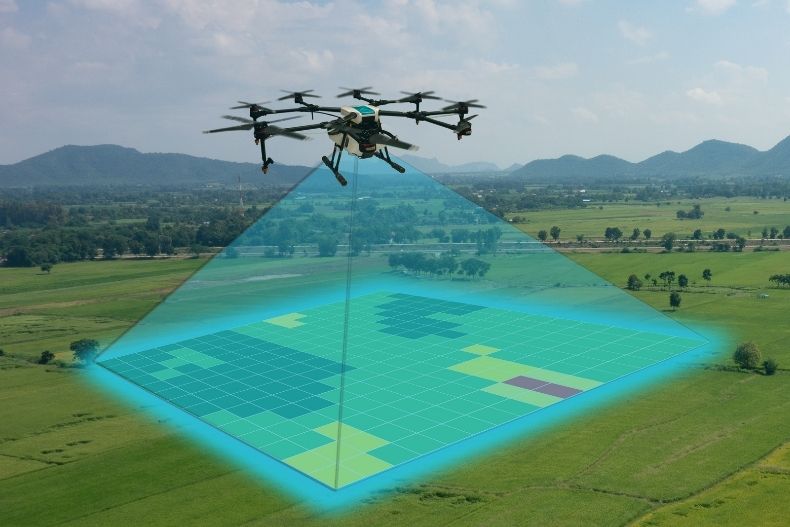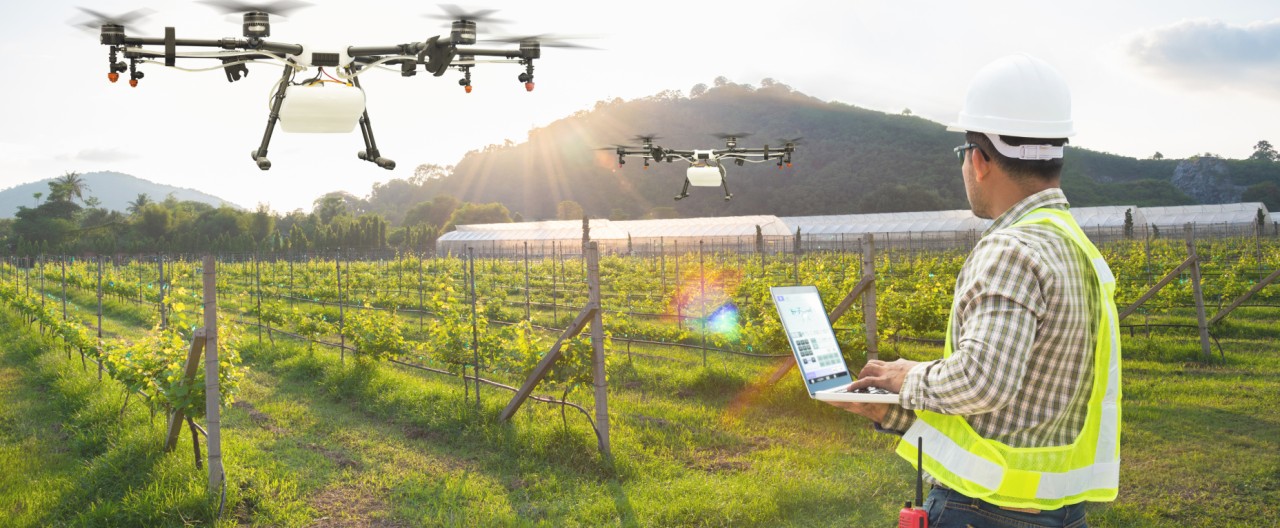
Precision Agriculture: Leveraging Big Data and AI for Enhanced Crop Management
In a generation where technological advancements are revolutionizing every sector, agriculture is no exception. Precision agriculture, a cutting-edge approach, integrates Big Data and Artificial Intelligence (AI) to optimize crop management and transforms traditional farming practices into more efficient and sustainable systems. This innovative method holds the promise of enhancing crop yields, minimizing resource wastage and promoting environmental sustainability.
The Role of Big Data in Precision Agriculture
At the core of precision agriculture lies the utilization of Big Data. Agriculture experts now have access to a vast amount of information collected through various sources such as satellite imagery, sensors, drones and weather stations. These data sources provide valuable information on soil conditions, crop health, weather patterns and pest infestations. By analyzing this data, agriculture experts can make informed decisions tailored to specific sections of their fields, which enables precise interventions and maximizes productivity.

Utilizing AI for Data Analysis
AI plays a crucial role in processing and interpreting the massive volume of data generated in precision agriculture. Machine learning algorithms analyze historical data to identify patterns and correlations, which enables predictive modeling for optimal crop management strategies. AI algorithms can predict crop yields based on environmental factors, detect early signs of disease or nutrient deficiencies and recommend interventions to maximize productivity while minimizing resource usage. This knowledge allows agricultural experts to keep a better check on their crops through the data they receive.
Optimizing Resource Usage
Precision agriculture enables farmers to optimize resource use such as water, fertilizers and pesticides. By employing precision irrigation techniques, farmers can deliver the right amount of water to crops precisely where and when it is needed, minimize water wastage and reduce soil erosion. Similarly, targeted application of fertilizers and pesticides based on data-driven insights minimizes chemical usage, thereby mitigating environmental impact while maintaining crop health. This precise resource management not only improves farm profitability but also promotes sustainability by conserving water and reducing chemical runoff into water bodies.
Real-Time Monitoring and Management
One of the key advantages of precision agriculture is its ability to facilitate real-time monitoring and management of field operations. IoT devices and sensors installed across the farm continuously collect data on soil moisture levels, temperature and crop growth parameters. Farmers can remotely access this data through mobile applications or web platforms, which enables them to monitor field conditions and make immediate decisions from anywhere. Automated systems can be activated promptly in response to changes detected by sensors, which ensures optimal crop management.
Benefits for Smallholder Farmers
The adoption of precision agriculture is not limited to large-scale farms; it is equally beneficial for smaller farmers. Mobile-based applications equipped with AI algorithms can provide personalized recommendations to smaller farmers, which can guide them on optimal planting schedules, pest management strategies and market insights. This democratization of agricultural technology empowers farmers at all levels to enhance productivity and economic stability.
Challenges and Future Outlook
Despite its great potential, the widespread adoption of precision agriculture faces challenges such as high initial investment costs, limited access to technology in rural areas, and concerns regarding data privacy and security. Addressing these challenges requires collaborative efforts from governments, technology providers and agricultural stakeholders to develop affordable solutions and establish supportive policies.
In conclusion, precision agriculture represents a paradigm shift in modern farming practices,and leverages Big Data and AI to revolutionize crop management. By harnessing the power of data-driven insights, farmers can optimize resource usage, increase yields and promote environmental sustainability. As technology continues to advance, precision agriculture holds the promise of ensuring food security and economic prosperity for generations to come.
SIIT Courses and Certification
Also Online IT Certification Courses & Online Technical Certificate Programs


